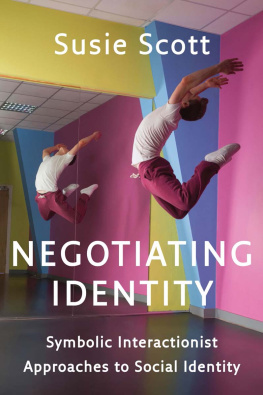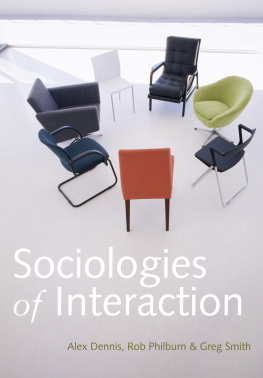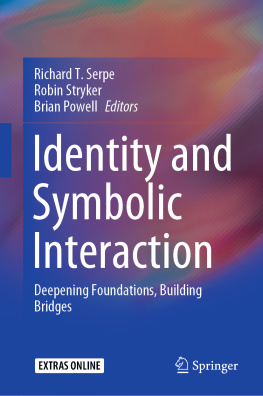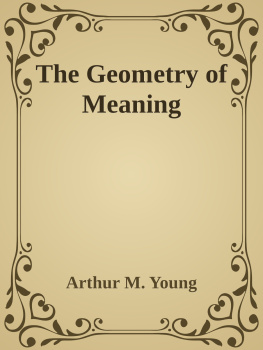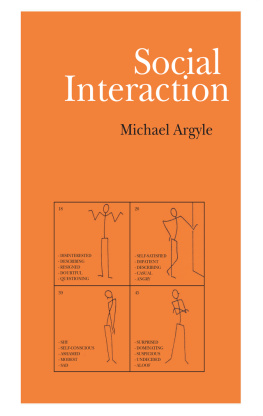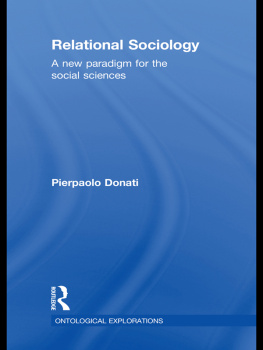There is a great deal of presumption involved in attempting to write a book on aspects of sociological thought. In a sense, every sociologist is a theorist of sorts. Even the most committed empiricist employs an anti-theory which in itself, on inspection, turns out to be a theoretical statement.
The conscious attempt, therefore, to deliberately write about theory is not to be seen as an exercise in word magic. If every sociologist is his own theorist, then the justification for theory must surely lie in the fact that theorizing is a crucial sociological activity. It is an activity which is not divorced from the everyday activities of bread-and-butter sociologists. In this sense, therefore, theory is a process which is not to be confused with the endless elaboration of conceptual models. It is part and parcel of being sociologically alive.
Of course, it might be asserted that ones presumption lies in attempting to tread in the hallowed footsteps of the nineteenth-century giants, or slavishly emulating the contemporary gurus of the sociological establishment. Indeed, it must be admitted that all too often sociological thought seems to boil down to a debate with Marxs ghost or an attack on Parsons. This leads to the absurd situation in which sociological theory is conducted in terms of a confrontation between the conflict and consensus models of society.
In this confrontation there seems to be no room for alternative perspectives. Possible alternatives are relegated to the sphere of ideology, or are regarded as being sociologically irrelevant. An interest in social phenomenology, ethnomethodology or even structuralism is seen as merely being the preoccupation of a species of intellectual mavericks. There is, undoubtedly, an element of truth in the notion that sociologists are frequently seduced by intellectual fashions derived from the philosophical avant-garde, without paying due regard to the context in which these ideas are relevant, yet the same can be said for other members of the self-styled intellectual lite.
In addition, the fantastic claims that are made every few years for a new liberating concept of perspective, leads one to the conclusion that sociologists are involved in their own millenarian movement. Such claims have been made for role theory, action theory, cybernetics, systems theory, information theory, games theory, etc., etc. It is essential to realize that this proliferation of concepts, models and theories never represents points of arrival they merely indicate the essential open-ended and processual nature of the sociological enterprise. There is no theoretical certainty in sociology. The polarization of sociology into two armed and antagonistic theoretical camps obviously completely distorts social reality it also ignores the possibility that millenarianism often has a transforming quality.
Conceptual purity
The way in which some practitioners approach their subject-matter may force the cynic into thinking that sociologists spend a great proportion of their creative lives in coining neologisms in order to legitimate their continuous employment as sociologists. This is not an attack on sociological millenarianism as such. Criticisms of this sort usually derive either from humanists who are shocked by the sociologists rape of language, or from natural scientists who believe that science is something that goes on in laboratories. It is not surprising, therefore, that sociologists over-react by an almost obsessive sensitivity to the need for conceptual clarity on one hand, and an irrational ritualistic emulation of appropriate methodological procedures of the natural sciences on the other hand. This leads, inevitably, to a concern with conceptual purity, and eventually to the hope that sociology will eventually aspire to the condition of economics, just as all art is supposed to aspire to the condition of music.
In Britain, this aspiration is illustrated by the way in which sociologists seem unwilling to formulate conceptual schemes without some sort of deference to linguistic philosophy. There is always a metaphorical linguistic philosopher looking over the theorists shoulder before he summons up enough enthusiasm to commit himself to any level of abstraction. The key word is clarity, at least, this is the internalized injunction and ideal. But this lucidity is never achieved, except perhaps in the work of such diverse theorists as Homans and Merton. Also, the traditional British involvement in grass-root empiricism usually means that theory is regarded with an excessive degree of suspicion, particularly when this theory has its origins in dubious continental philosophies or turgid American dogma.
What Glaser and Strauss call the rhetoric of verification is, I think, still the unofficial orthodoxy of the British sociological establishment, in spite of the inroads that other viewpoints have made among younger sociologists. It is still true to say that British sociology has not produced a substantive theoretical perspective of its own. It borrows ideas and concepts from everybody else but for various reasons, particularly those relating to the peculiar status that sociology enjoys



